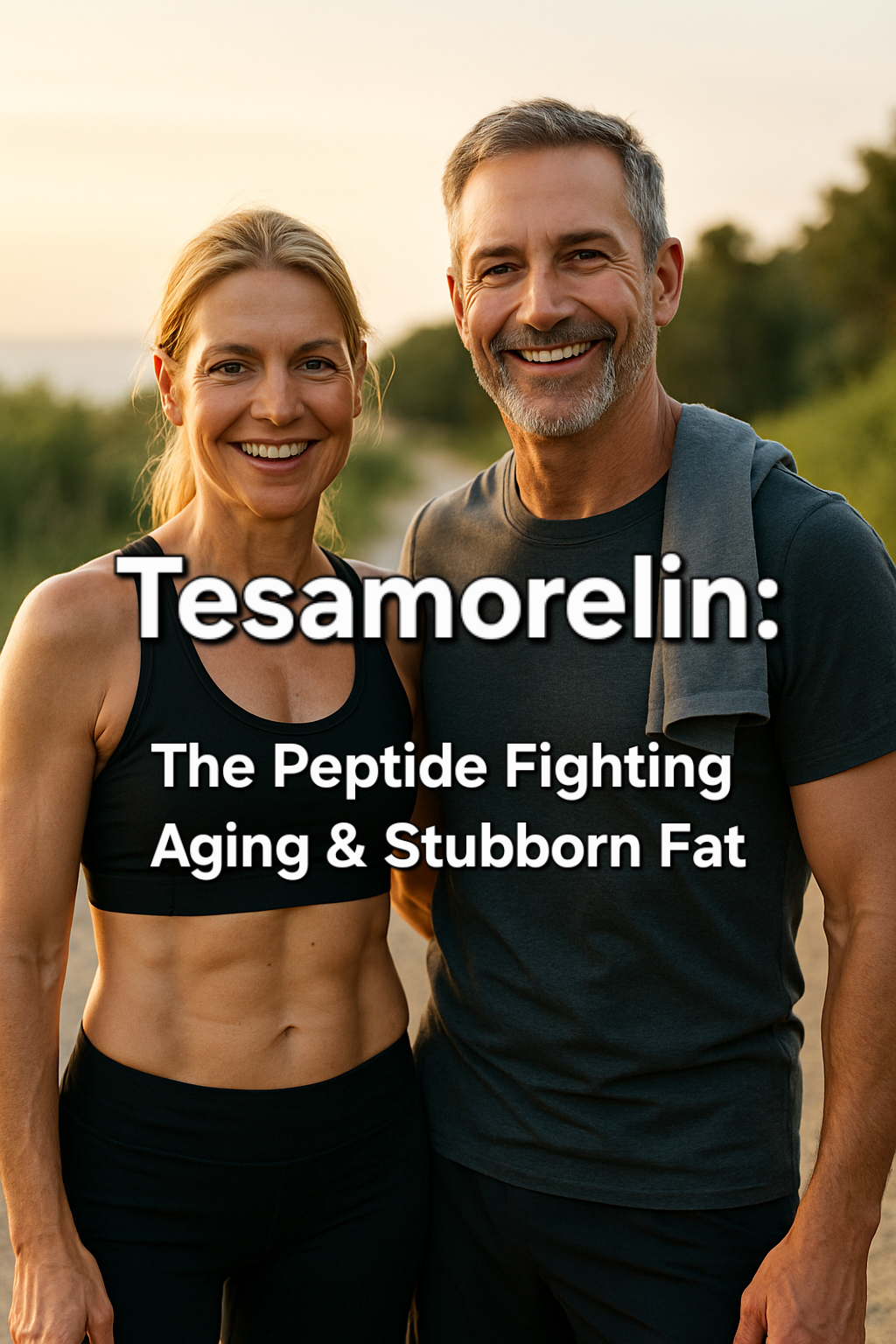Any expert in the arena of fat loss, body sculpting/building and wellness will know that having optimized hormones is a MUST if one wants to look and feel their absolute best. Yes, it is critically important to be engaging in a regular exercise program. And yes, it is also very important that a proper diet and nutrition program is being followed on a regular basis. But, if one’s endocrine system and its hormones are a wreck then success will be mediocre at best.
Although poorly understood on the grand scale, at least most “get” the diet and exercise thing and its importance. But many are still left scratching their heads in frustration when they are in fact following a nice diet and workout regimen but still not seeing their hard work paying off.
There is a plethora of good information accessible to educate us on an appropriate diet or workout regimen. We will leave those two topics off to the side for now with a deeper focus on the role of hormones here. There are essentially three major pieces to each individuals unique “puzzle” that need to be implemented and taken care of correctly:
- Proper diet
- Consistent and appropriate exercise program consisting of weight training (priority) and cardio 3-5x/week
- Optimized & healthy hormone levels
Our goal with this article here is to discuss how certain key hormones play such important and critical roles in one’s quest to be and look their sharpest.
Hormones; The Master Regulators
Hormones affect all human functions. From encouraging fat burning and metabolic processes, enabling muscle contractions and building muscle; without them, these actions would not happen. They also help to tell us we’re hungry and need food as well as telling us when we are full. They tell our bodies when to release energy in a stressful time of crisis or danger in addition to telling our bodies to hoard and store energy. The list goes on and on…
But hormones don’t exist in a married lock and key type world. They really are more like master keys that fit many different locks and open and close a variety of doors to multiple systems within the body. No hormones are good or bad. They are constantly in a delicate dance often going up and down depending on the needs of our body or the environment we place them in at certain times.
When hormones get out of balance and are chronically too high or low under key circumstances then problems often arise. This makes understanding hormones and their relationship and interactions with our brain very complicated to understand.
This article will give a simplified overview and understanding of the importance of some of the most key hormones and their roles in your hormone “puzzle”. Understanding and addressing any areas that are crying out loud for help may just be the missing piece or two that has needed attention to help you make the change that you desire and deserve.
Players and Pieces of The Hormone Puzzle
Hormone #1: Insulin
Insulin’s “job” is to regulate glucose entry into fat and muscle cells, acting as a storage hormone. When we consume high glycemic foods and carbs like sugar, they empty into the bloodstream very quickly as they are ready to go to fuel our brain and body. When there is a sudden rise in blood glucose, our body is like “holy crap, we need to get this under control” because excessive amounts can be bad for our circulatory and vascular system. The pancreas then releases insulin which is like a vehicle that will shuttle this glucose in the blood where it can.
If we can’t use this circulating glucose immediately for energy, the body’s first choice is to knock on the doors of muscles to see if there is room for this glucose. If our muscles are full (those that don’t exercise usually have full stores because they aren’t burning them off), insulin will help store in the liver and if the liver is full it will then store as body fat. Depending on the structure or type of carbohydrate, this order of process may be altered.
When all this happens, our blood glucose levels fall back down quickly and we then feel tired and hungry again and then the typical person with this high carb and sugar intake lifestyle reaches for the next bad choice/high glycemic and processed meal that often results in the same thing happening again and again and again… These type of eating habits often lead to obesity, diabetes, inflammatory diseases and cardiovascular issues over time.
If your goal is fat loss, then avoiding large spikes of insulin and managing your levels is critically important in being successful in your efforts. Repeated spikes of insulin through the day, every day equals the perfect environment for storing, staying or becoming fat. In short, avoid sugar!
Hormone #2: Testosterone
Testosterone facilitates protein synthesis while building and maintaining muscle. Muscle is metabolically active and burns calories. This all promotes fat burning and the ability to build lean muscle mass in trained muscles and nice physical shape.
High intensity exercises such as sprints and weight training help to enhance production and utilization of testosterone. In addition, it is associated with endogenous growth hormone and IGF-1 release. The list of roles this hormone plays is quite extensive, as it also helps in the following areas:
- Maintaining reproductive tissues
- Stimulating sperm production
- Stimulating and maintaining sexual function
- Increasing muscle mass and strength
- Maintaining bone strength
- Sense of well-being and a man’s confidence
- A man’s “get up and go” energy levels
Having low or subpar levels of the critical hormone that makes a man, well, a man is detrimental to any success he is striving for in the gym, the bedroom, his waistline, energy and mood levels and more importantly; in life. Having low testosterone doesn’t have to be accepted as a “normal” part of life. Feeling lousy and run down is anything but normal. You can read a bit more here:
http://www.youth-rx.com/declining-testosterone-levels-in-men-not-part-of-normal-aging/
Hormone #3: Estrogen
From helping to maintain a healthy heart and bone density, supporting brain function and mood to playing critical roles in women’s menstrual cycles and reproductive health, estrogen is a critically important hormone. It is a more prominent player in females versus males. Although men need estrogen too, it is not to the degree that women do.
Estrogen is a hormone associated with females that give women breasts and hips, and helps joints stay lubricated. In women, estrogen is produced mainly in the ovaries; it is also produced by fat cells and from adrenal gland pathways. Men have it also, but at far lower levels. But both men and women are at risk of estrogen overload in today’s modern environments, which is having excessive levels of estrogen in the body- this can even happen in menopause. This is referred to as “estrogen dominance”.
Excessive levels of estrogen are attributed to many ailments and complaints in both men and women. Estrogen dominance is associated with painful menstruations, cramps and endometriosis in women. High levels of estrogen are also associated with gynecomastia (“man boobs”) and low testosterone in men. Excessively high estrogen is often associated with excessive levels of body fat, certain processed foods we eat on a regular basis and even external lotions we apply on our skin loaded with parabens that act as “weak estrogens” in body, just to name a few. You can read a bit more in depth on “man boobs” and how to address this concern here below.
Click here: http://blog.youth-rx.com/manboobs
Hormone #4: Growth Hormone
Known for its roles for enhancing the strength of connective tissues such as tendons, ligaments, skin and muscle, growth hormone is obviously a desired key player for anybody wanting to maintain or build back a more youthful body and figure.
Growth hormone also influences the body’s ability to metabolize and utilize glucose efficiently while improving fat loss efforts. Starting around the age of twenty, growth hormone levels steadily go down with most noticing a more drastic drop approaching the age of forty.
When optimized and kept in nice, vibrant and healthy ranges, growth hormone helps in the following areas:
- Better muscle strength and exercise performance
- Enhanced fat burning potentials
- Faster healing from injuries
- Improved cardiovascular function
- Stronger bones
- Better mood and cognitive function
To improved body composition and performance or simply to stall the aging process, these are great solutions for many to achieve their wellness and fitness goals. But, do you really know what HGH and IGF-1 does in the body or when, why and how it’s produced?
To learn a bit more, click on the links below:
Hormone #5: Thyroid Hormone
Thyroid hormone (T3 & T4) is best known for its well felt roles in regulating metabolic rate by affecting enzymatic activity, body temperature and influencing our levels of energy we have.
One reason many plateau when dieting in this area is that the diet may be a bit too extreme or restricted and for too long. This often leads to reduced thyroid hormones and function which leads to reduced body temperature and metabolic function with energy preservation. This is an ingrained human body response going back to cave man days when we had feast or famine conditions. When the body senses food is scarce, it will respond by preserving what we have and shutting metabolic functions down to preserve as much energy as it can.
This is one of the reasons why being knowledgeable about how to properly diet and eat accordingly to your body type, schedule, age, gender and more is important in your journey to look your best and be your fittest.
Causes of thyroid imbalances can vary with everyone, but these are some of the more common contributors:
- Toxic environmental exposures
- Hormone Imbalance (like high Cortisol from stress)
- Dietary Deficiencies
- Food Intolerances
- Severely restricted caloric restrictions (as mentioned already)
This is a critical hormone in one’s quest to lose body fat and MUST be sustained at an optimized level because of its critical role in regulating metabolic rate and body temperature.
Hormone #6: Cortisol
Known as “the stress hormone,” cortisol has an influence on and helps to regulate many of the changes that occur in the body in response to stress including blood pressure, central nervous system, regulating blood glucose utilization in addition to Fat, protein and carbohydrate metabolism to maintain blood glucose (gluconeogenesis) and immune system responses.
Under normal circumstances, cortisol levels normally fluctuate throughout the day and night in a circadian rhythm that peaks shortly after we wake up and they reach their lowest around the half way point through the night during sleep, assuming 8 hours of sleep.
While it is vital to our health for the adrenals to secret more cortisol in response to stress, it is also very important that bodily functions and cortisol levels return to normal following a stressful event. Unfortunately, in our modern lives filled with deadlines and too much pressure, the stress and adrenal overload is activated so much that our bodies don’t always have a chance to return to normal.
The effects of having too much cortisol in the body can include weight gain, muscle weakness, and mood swings that may turn into anxiety or depression. Like all other hormones, it is critical to have balance and strive to maintain our hormones at an optimized level.
If you suspect you have cortisol overload, here are a few tips that may help:
- Switch to a real/whole food diet and “eat the rainbow”
- Reduce and manage stress
- Cut back on caffeine and stimulants
- Exercise regularly (helps #2)
- Meditation and yoga
- Consider adaptogen herbs and Superfoods (such as ashwaganda, bacopa, unprocessed cocoa, chamomile tea)
- Eat breakfast; Cortisol is highest in am. You can read more here: http://blog.youth-rx.com/breakfast-food-and-hormones-are-related
Fat Loss and Body Sculpting Is often a Puzzling Picture. Do You Have All the Pieces to Complete Yours?
In recapping, we should hopefully understand the importance of having optimal levels of hormones in our quest to be our healthiest, look our fittest and feel the way we deserve. Without enough, too much of them or an imbalance of some, we are doomed to struggle and be forever frustrated with attempts at being our best.
Each year as the holiday season approaches, millions of Americans desiring to look better, be more fit and become healthier start mentally preparing themselves to make a dedicated effort to achieve their goals. Decide to be a part of the winning crowd seeing the best results by addressing this critical and often neglected area of a successful program – ensuring your hormones are looking their best.
If you have suspected something is off or if there is a “missing piece” to your fat loss and body sculpting picture, discovering what your endocrine profile looks like may reveal the missing links that you’ve been missing. Our team here at Youth-RX bring many years of experience to the table in helping hundreds upon hundreds of clients realize and achieve their goals of being all they can be. You can to.
If you would like to know and explore more, simply fill out our health history form and one of highly experienced consultants will schedule a complimentary consultation to explain the processes, programs and more to you.
Submit the on-line form: www.youth-rx.com/form
Cheers to a NEW YOU!
Warm wishes,
YOUTH-RX team



